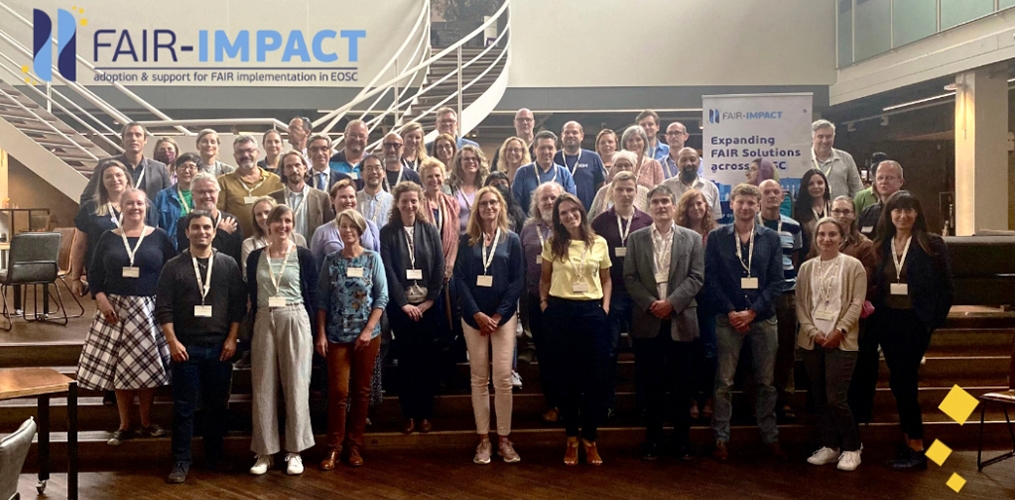
LifeWatch ERIC is glad to be actively participating in the FAIR-IMPACT project kick-off meeting, taking place as a hybrid event on 27 and 28 of June in Amsterdam, The Netherlands, following the official launch of the project on 1 June 2022.
With the ambitious goal of realising an European Open Science Cloud (EOSC) of FAIR data and services, the Horizon Europe project will support the implementation of FAIR-enabling practices, tools and services across scientific communities at a European, national, and institutional level, connecting knowledge across scientific domains on persistent identifiers, metadata and ontologies, metrics, certification and interoperability aspects via a community-led approach. The project will build on the successful practices, policies, tools and technical specifications arising from FAIRsFAIR, other H2020 projects and initiatives, and from the FAIR and other relevant Working Groups of the former EOSC Executive Board.
Service Centre ICT Coordinator, Nicola Fiore, carried out a presentation in the Integrated Use Cases session during the meeting on 27 June, on Metadata and Ontologies: the role of EcoPortal.
More information can be found about FAIR-IMPACT on the project website, LinkedIn profile and Twitter page.
You can learn about other projects in which LifeWatch ERIC is involved on the Related Projects page.